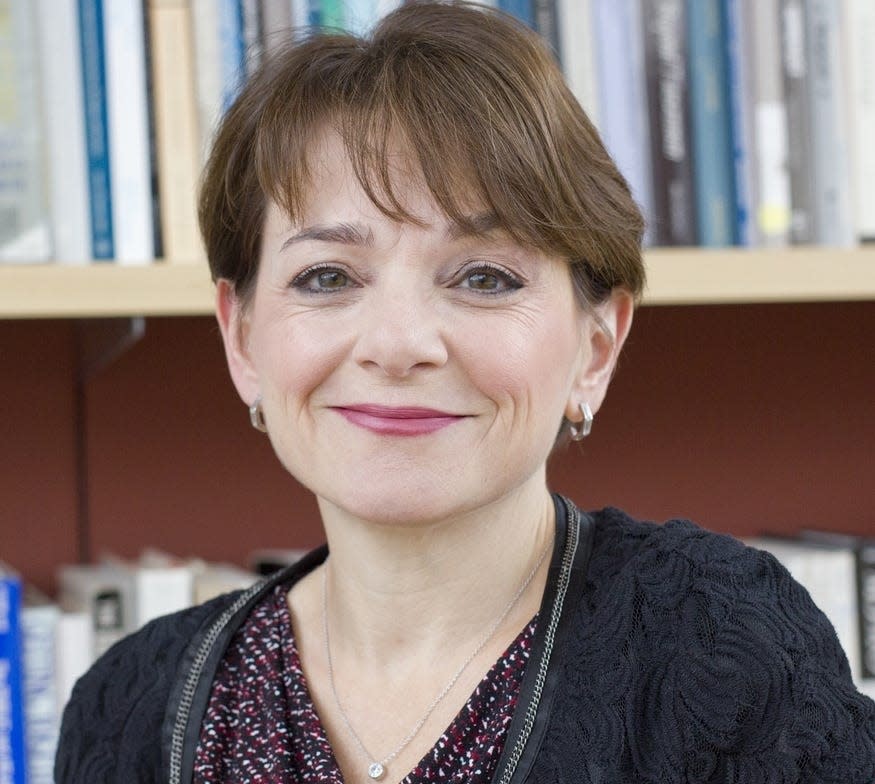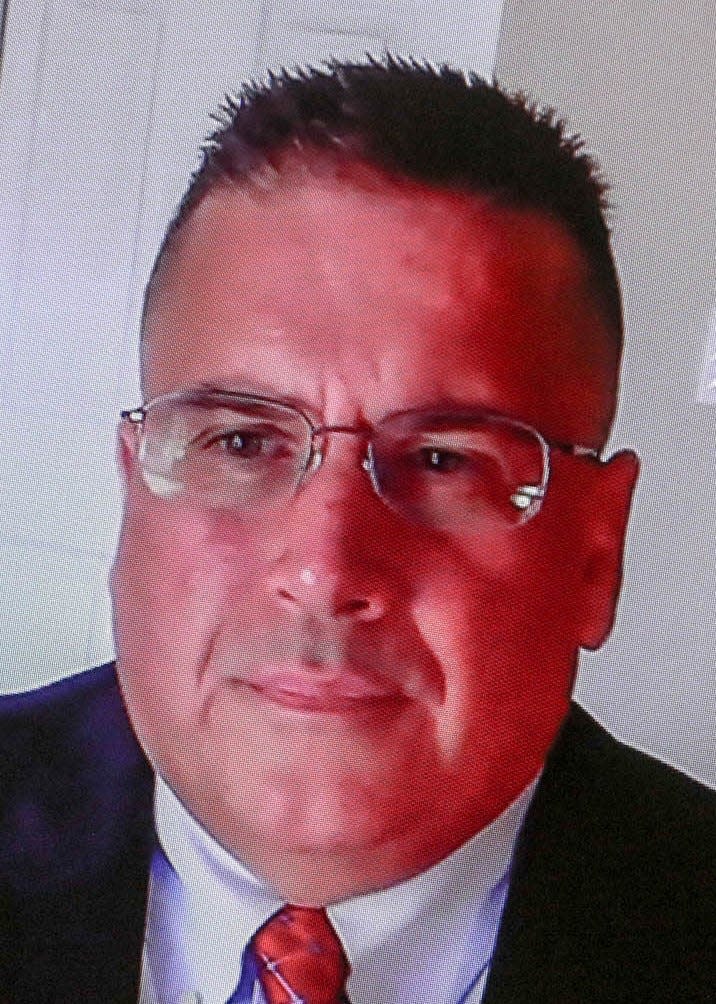35's a crowd: Why so many Rhode Islanders are running for Congress, and what it means
- Oops!Something went wrong.Please try again later.
Everyone you thought was running for Congress in Rhode Island is running, and some people you'd never thought of, or heard of, are also running.
A whopping 35 candidates — 22 Democrats, four Republicans and nine independents — declared their intention to run for the 1st Congressional District seat vacated by David Cicilline, enough to field a football team and fill several debate stages.
In all likelihood, a large chunk of them will not make a September primary or November general election ballot. To get on the ballot, they will have to get the signatures of 500 voters by July 14.
But even if only 25, or 20, candidates make the ballot, that's a big number for a Rhode Island congressional race.
By comparison, last year eight candidates — six Democrats, one Republican and one Moderate — made the ballot in the 2nd Congressional District election to replace the retiring James Langevin.
More: Ethics complaint filed against McKee says Capital Grille lunch part of RI's 'pay-to-play' culture
Why are there so many candidates this year?
Political insiders agree on one reason so many candidates are running in this special election: Since it doesn't coincide with the regular election cycle, current officeholders can run without jeopardizing their existing office.
This could have influenced the decisions of Sabina Matos, Sandra Cano, Ana Quezada, Marvin Abney, Stephen Casey and John Goncalves to jump into the race.
But those five are only 17% of the declared candidates. What about the rest?
"If you are a cynic, you might assume some could run and use it as an opportunity to raise their name recognition for the future, even though they are not a serious candidate," campaign operative and political fixer Jeff Britt told The Journal on Friday about the large field.
"I think there are just so few seats available in Rhode Island, when there is an open seat, then everyone sees it as a once-in-a-decade or generational opportunity," said Brown University political science professor Wendy Schiller.
More: There's a special state Senate election this year. Here's where the candidates stand.

Tony Affigne, political science professor at Providence College, agreed and noted that between 85% and 95% of incumbent members of Congress get reelected, setting off a scramble for rare open seats.
The opportunity to compete in a low-turnout special election, where a relatively small number of voters could swing the outcome, also makes this race attractive, he said.
How will a crowded field change the race?
Typically, a larger number of competitors benefits favorites, putting a premium on name recognition and making it harder for upstarts to break through the cacophony of voices.
"A large number of candidates means a small numbers of votes can win the election, but on the other hand, a large number of unknown candidates draws votes from one another, leaving the favorites to mobilize their much larger bases and organizations," Affigne said.
Former congressional candidate and teachers union chief Bob Walsh said a crowded field will make it more awkward for some power players and groups to pick sides, out of fear of angering a friend, ally, colleague or the eventual winner.
By the same token, those who do endorse could have greater impact than they would in a more typical election.
More: Six issues died at the State House this week. These are the ones expected in 2024.
"A lot of groups will use electability as one of their criteria, but some of the larger groups have the ability to change the electability equation," Walsh said. "As few as 8,000 votes could be the winning number. For some organizations that have half that many members, doing nothing is a decision, too. A candidate could tell them, 'I can do this, and you could put me over the top.'"
He said East Providence could be a bellwether, with no hometown candidates among the major candidates, but Providence would probably play an even more central role than in a typical election.
Britt said the crowded field could complicate the math of candidates relying on cleaning up one geographic area to win.
And it probably means money will be more of a factor, not less, than in a smaller field.

"People might not like it, but in a crowded race like this, money might be two or three times more important," Britt said. "With a quarter of a million dollars or $400,000, you can get through and get your message out. Those who don't have it, can't. There are no Joe Shekarchis or Helena Foulkeses running. ... Candidate X will need to educate people on who they are, particularly with a short time frame."
Are so many candidates good for democracy?
As the number of candidates passed the 20 mark, former Cicilline staffer Rich Luchette tweeted what many politicos were thinking, even if they didn't say it.
21 candidates is, to put it mildly, a mess. Rhode Island should look at raising signature requirements above the current threshold of 500 so that only serious candidates make the ballot. https://t.co/pGTcHML77U
— Rich Luchette (@richluchette) June 30, 2023
"21 candidates is, to put it mildly, a mess. Rhode Island should look at raising signature requirements above the current threshold of 500 so that only serious candidates make the ballot."
Said Schiller: "I am a believer that anytime you have multiple candidates it is a good thing for democracy."
Affigne said the most notable thing about the field is not its total size, but how many women and people of color are running.
"There have never been as many Black and Latino candidates in a Rhode Island congressional election," he said. "Bella Noka would make history if she gets on the ballot as the first Native American to run for Congress in Rhode Island."
This article originally appeared on The Providence Journal: Why are 35 people running for Congress in Rhode Island?

